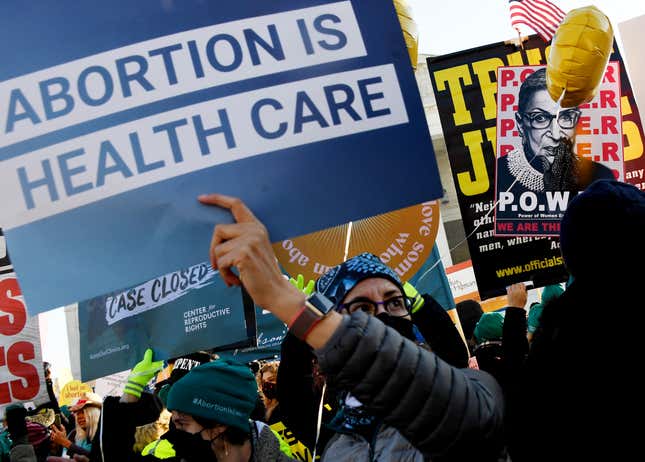Iowa’s ‘MOMS’ Bill Wants to Force You to Be a Mom
The legislation funds anti-abortion crisis pregnancy centers, which lie to and endanger pregnant people and are essentially being paid to spy on them.
AbortionPolitics

Iowa Republicans know we’re all sick and tired of the abortion bans sweeping across the country lately, which is why they want to assure us their new bill, the “More Options for Maternal Support,” or MOMS bill, isn’t exactly an abortion ban. It’s just a slightly more long-winded approach to screwing over pregnant people and shaming those who have abortions.
“We’re not trying to restrict abortions in any way, we’re just trying to help make them rarer—to help provide women with the support they need to feel confident making that decision to have that baby,” state Sen. Mark Costello has said of the bill.
MOMS, which passed out of Iowa’s Senate on Tuesday, would offer $1 million in state funding to so-called crisis pregnancy centers across the state, which exist to prey on often young, low-income pregnant people seeking abortion services. Many of these anti-abortion centers attract people with promises of free pregnancy tests and ultrasounds, since many states—including Iowa—require people to receive costly ultrasounds prior to having an abortion. But once they enter, they’re subjected to a barrage of terrifying lies about abortion and contraception, including that abortion causes breast cancer (it does not), that medication abortions can be reversed despite lack of evidence for this, and that birth control causes hair loss and memory loss (no???).
-

-

-

-

-

-

-

-

-

-

-

-

-

-

-

-

-

-

-

-

-

-

-

-

-

-

-

-

-

-

-

-

-

-

-

-

-

-

-

-








































